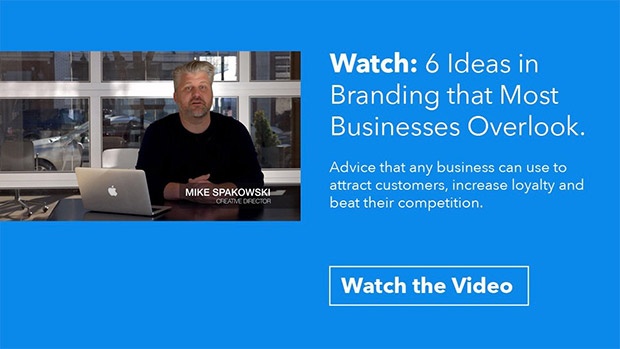Logistics Marketing: Leveraging Your Brand to Differentiate & Dominate
I’ve researched hundreds of logistics brands in the last couple of months. I’ve poured through websites, evaluated logos and reviewed positioning statements.
And I’ve noticed a pattern.
For the most part—and with a few notable exceptions—the logistics industry is filled with branding and marketing that doesn’t convey the energy, innovation and spirit that powers the market.
And that’s a damn shame.
Because logistics companies like yours aren’t just moving boxes. You’re the unsung heroes keeping the world spinning, one intermodal delivery at a time.
But the logistics industry is in a unique spot. After pandemic-induced supply chain disruptions and record-setting revenue spikes, many logistics businesses are looking to maintain the momentum.
How?
The answer, according to most marketers, sounds something like: “A strategic mix of search engine optimization, content marketing, account-based marketing with strategic pay per click campaigns and stellar video content.”
I don’t disagree with any of that. But for those marketing tactics to work, something else has to come first.
Enter the logistics brand.
The impact of a logistics company brand
Third-party logistics companies (3PLs) and logistics tech businesses face tough challenges.
There are plenty of players in the market and overlapping services and technology leads to commoditization. Clients often choose providers based (at least in part) on cost, causing price wars where nobody wins.
But there’s an antidote to competing on price and struggling to stand out in a pile of proposals: a strong brand.
While branding is sometimes seen as superfluous, it’s incredibly important in business and driving revenue. Because branding influences people’s perception of a company, its value, authority and expertise.
And even in business, perception is reality.
A logistics company that uses brand strategy and marketing efforts successfully can sway audiences to buy faster, pay higher prices and stay loyal for longer. A study performed by Google and BCG reported that brand marketing can be just as effective in B2B industries as in B2C markets.
But what does that look like in the logistics business?
How logistics companies can get branding right
The first step in creating a strong brand your logistics business can grow from is determining your positioning strategy.
Here’s what you’ll need to consider:
Target audience
Understanding your target audience is crucial in a strategic marketing plan, from foundational brand positioning to determining digital channels and creating content that resonates. Companies need to dig deep into the industries they serve and the people who work within the companies—what their goals and pain points are, their understanding of available solutions, and role within their team. That might involve shadowing operations at a client’s facility, conducting in-depth interviews with supply chain managers, or leveraging data analytics to identify patterns in client behavior and pain points.
Current brand positioning
The process starts with an analysis of your company’s current market position, evaluating your strengths and weaknesses. This is the time to get realistic—do the strengths your company has been touting actually matter to your audience? Are there gaps between what your messaging promises and what your company actually delivers? And are there aspects of your company that make a huge difference, but haven’t been promoted?
Competitive positioning
You know your audience and their needs, and the strengths and weaknesses of your company. But where does your business stand compared to other logistics companies? A competitive analysis will answer that question.
The third-party logistics industry landscape is constantly evolving. It’s crucial to understand not just direct competitors, but also potential disruptors, as well as the promises they’re making to your potential clients and how those messages compare to yours. For instance, a 3PL might need to keep an eye on both traditional rivals and emerging platform-based logistics marketplaces. Do the competitors promote great service, extensive carrier networks, cutting-edge TMS platforms or something else entirely?
A competitive analysis will help you uncover gaps in the category—areas where your brand can stand out and plant a flag to claim a portion of the market.
Daring to be different
There’s a point to all this research: once you uncover what your audience cares about, and how that aligns with what your company does better than your competitors, you’ve got your positioning.
A great positioning strategy and brand identity allow you to stake out your company’s territory in your customer’s mind in a way they’ll connect with and remember. But the key to actually being memorable is being different: standing out like a state-of-the-art automated warehouse in a sea of traditional storage facilities.
Think ONE’s hot pink shipping containers, CHEP’s commitment to eliminating waste and Project 44’s “high-velocity supply chain platform.”
This willingness to be different—to claim an unexpected color, uphold unique brand values, have a strong point of view—isn’t just important when creating your value proposition.
It’s an attitude your marketing team needs to carry on throughout every customer touchpoint to have the most value.
Let’s talk about trust
In logistics, trust is everything.
Logistics companies are providing a service that will impact the customer experience of their clients’ customers (I know, very meta). You’re providing a service to your clients that can directly impact their customers’ experience, good or bad. Your marketing strategy needs to build trust that your teams, technology, systems and partners are up for.
This, too, can be addressed with a strong brand.
Brand promise
A well-crafted brand acts as a promise to your clients. It’s not just about a catchy logo or slogan; it’s about consistently delivering on your commitments. If a 3PL claims to offer seamless cross-border logistics, it needs to have the infrastructure and partnerships in place to make that a reality. Similarly, if a tech company boasts about its real-time tracking capabilities, that system needs to work flawlessly, even during peak seasons.
When your brand becomes synonymous with reliability, it creates a powerful trust signal in the market. A unique brand promise, inspired by the audience and what they care about, will help build trust.
Expertise
Consider how you can showcase your expertise through your brand: creating thought leadership content, sharing case studies of successful partnerships, or highlighting your team’s industry certifications. Positioning your company as a knowledgeable authority in the field builds credibility and trust.
Social proof
Client testimonials and reviews are incredibly powerful. Incorporate these into your branding efforts. Real stories from satisfied clients can be incredibly persuasive in building trust with potential new customers.
Brand values
Your brand should also reflect your company’s values. If you prioritize sustainability, innovation, or exceptional customer service, make sure these values shine through in your branding. Again, consider what your audience cares about. Clients are more likely to trust companies whose values align with their own.
Consistency
Remember that trust is built over time. Consistency in your branding efforts—from your logistics website to your social media presence to your email marketing—reinforces your reliability. A strong, consistent brand presence across all touchpoints tells clients that you’re a stable, dependable partner in their supply chain.
Building a logistics brand through marketing efforts
Differentiation isn’t just for branding; logistics marketing needs to be rooted in differentiation, too.
As Marty Neumeier says, “When everyone else zigs, zag.”
So look at what most logistics companies do, and identify ways you can do differently.
Don’t just celebrate National Truck Drivers Week with an expected LinkedIn post thanking drivers—start a podcast where you invite truck drivers to call in with their stories.
Don’t just run print ads that boast the “great customer service!” every one of your competitors can also brag about—tell a story about how a customer narrowly escaped disaster, thanks to your company’s AI-powered tech.
Don’t just buy a booth at the trade show you’ve attended for the last five years—hire a marching band to parade through the banquet room and shake things up.
Digital marketing tactics for logistics marketing
Whatever you do, don’t confuse successful digital marketing strategies with successful brand building.
Think of your brand as a rich, delicious dessert. Your digital marketing strategy is the spoon. They’re both vital—nobody wants to eat a sticky bread pudding with their bare hands—but no one goes to a restaurant just for the spoons. Similarly, no one hires a logistics services company just because the company gets more organic traffic than competitors, or because it has web pages that rank high on search engines.
Those might be the how, but it’s certainly not the why.
Remember, marketing is messaging and frequency.
Your brand influences the messaging. The frequency comes from how it’s delivered.
Each of the channels in your logistics marketing plan can increase the frequency. Look for ways to use online marketing tactics like social media marketing and email marketing to promote not just your services or tech, but the brand itself.
With a strong brand and the right mix of channels, your company can reach new audiences, share compelling messages and build relationships on a mass scale.



